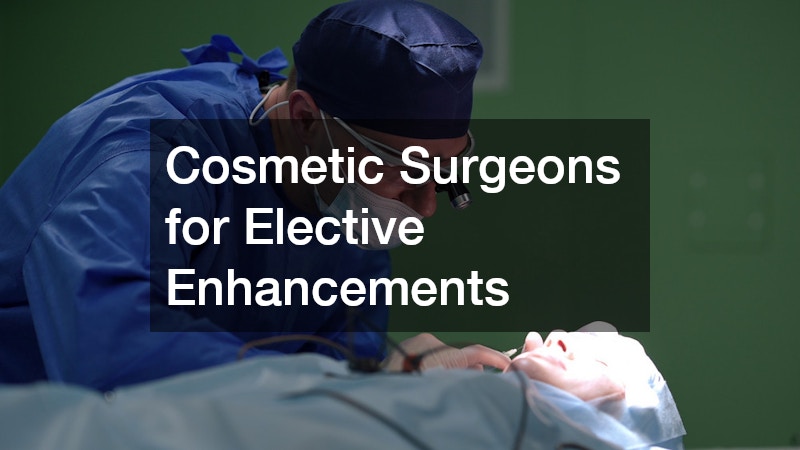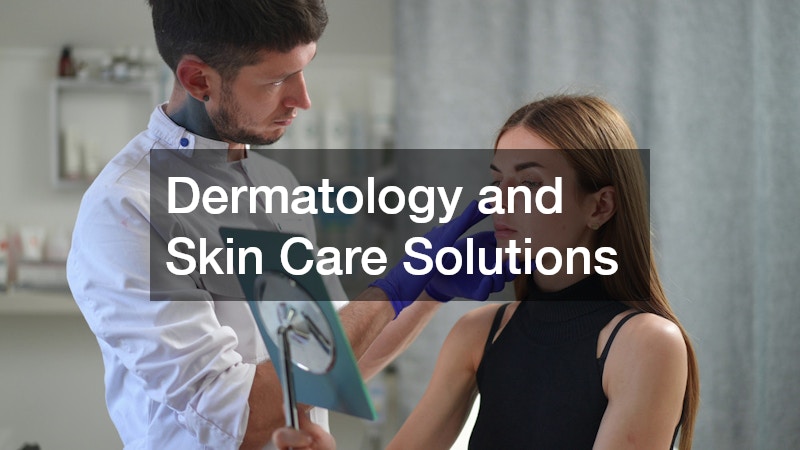
When most people think about visiting the dentist, they often associate it with teeth cleanings, cavities, or perhaps braces. But what many don’t realize is that your dentist can be a gateway to a wide array of healthcare professionals and service providers. Dentists are highly trained to detect abnormalities not only in your mouth but also in areas that affect your overall health. Because of this unique perspective, they are often among the first to notice signs of issues that require attention from specialists in other fields.
In fact, the types of referrals you can get from your dentist may surprise you. From cosmetic treatments to medical diagnostics and even emotional health services, your dentist plays a more integrated role in your well-being than you might have expected. Many dental conditions are symptoms of deeper health concerns, and vice versa. A routine dental checkup could result in a recommendation for a sleep specialist, dermatologist, or even an orthopedic evaluation. It’s a holistic perspective that underscores how interconnected our bodies truly are.
As dentistry has evolved, many practices now partner with professionals across the medical and wellness spectrum. Dentists are often a first line of defense not just for oral health but for early signs of systemic health problems. This makes their referral network incredibly valuable and potentially life-changing. In the sections below, we’ll explore 12 surprising types of referrals your dentist might give you—some common, some unexpected, but all important. Whether you’re dealing with a health concern or considering a cosmetic improvement, don’t overlook your dentist as a valuable source of guidance.
1. Cosmetic Surgeons for Elective Enhancements

One of the more surprising types of referrals your dentist may provide is to a cosmetic specialist for procedures such as a tummy tuck. At first glance, this connection may seem unrelated, but it stems from the dentist’s awareness of facial symmetry, jaw alignment, and overall body proportions. Dentists who specialize in reconstructive or aesthetic dentistry often work closely with cosmetic surgeons to ensure the patient’s entire appearance is harmonized.
For example, some patients pursuing full mouth reconstructions might also be considering cosmetic procedures to improve self-confidence. If a patient mentions dissatisfaction with their overall appearance during a consultation, a dentist may offer a trusted referral to a cosmetic specialist. These are among the more elective types of referrals, but they show how dental visits can open doors to broader self-improvement.
This integration of dentistry and body aesthetics reinforces a trend toward holistic beauty services. Your smile doesn’t exist in a vacuum—it complements the rest of your facial and body structure. That’s why your dentist may point you toward other specialists who can help you achieve your desired appearance.
2. Grief Support Services After Loss
Another often-overlooked referral that may come from your dental provider is one to funeral homes. This type of connection usually arises in the context of long-time patient relationships where the dentist becomes aware of family circumstances. While it may not seem medically related, dentists sometimes help coordinate posthumous care for deceased patients or support families in times of loss.
For instance, if a loved one passes away and had pending dental work or prosthetic devices like dentures, the dentist might refer the family to local funeral services that can handle special care needs. This kind of referral shows the compassionate side of dental practice and the trust that patients place in their providers.
In these cases, the referral is less about treatment and more about emotional and logistical support. It highlights the dentist’s broader role as a health and wellness advisor. Not all types of referrals are clinical—some are deeply human.
3. Animal Health Referrals for Pet-Related Concerns
Believe it or not, there are instances when a dentist might refer you to animal hospitals, especially if there are shared health concerns or exposures in the home. Pet dander, oral bacteria, or zoonotic diseases can sometimes play a role in human health issues. Dentists, particularly those with a holistic or family-focused practice, may recommend checking your pet’s health if recurring oral infections or allergies appear without explanation.
Additionally, dentists who are active in the community or work with pediatric patients might be asked for referrals to veterinary services. They often become a trusted voice in the household’s health network, especially in smaller or rural communities. While not a typical medical referral, it’s part of a wide spectrum of concerns dentists are trained to recognize.
This cross-species awareness is another example of how your dental visits can lead to unexpected insights and action steps to improve both your life and your pet’s.
4. Weight Loss Services for Health Optimization

Your dentist may refer you to clinics that offer weight loss shots or nutritional services. This happens more often than you’d think, especially when excess weight is contributing to issues like sleep apnea, jaw pain, or periodontal disease. Obesity has been linked to gum inflammation and other oral health complications, so it makes sense for dentists to collaborate with professionals in the weight management space.
In recent years, some dental offices have begun offering holistic wellness services that include dietary counseling. When deeper intervention is needed, they may refer patients to local weight loss programs that offer medically supervised solutions, including injections or personalized coaching.
These types of referrals illustrate how dental health is connected to systemic health. By referring patients to weight loss services, dentists help improve both the appearance and functionality of their patients’ bodies.
5. Addiction and Recovery Programs
Dentists may also recognize the signs of addiction before other healthcare providers do. Poor oral hygiene, rapid tooth decay, and dry mouth can be signs of substance abuse. Because of this, your dentist may offer referrals to substance abuse treatment centers. While a difficult topic to broach, addressing addiction early through a trusted provider can make a big difference.
Some dental practices work in coordination with behavioral health professionals to make this process more supportive. A dentist who suspects substance misuse might gently initiate a conversation and offer options for treatment. Since patients often trust their dentists and see them regularly, this can be an important turning point.
This is one of the most impactful types of referrals a dentist can give—helping someone begin the journey toward recovery and better overall health.
6. Sleep and Breathing Specialists
Snoring, teeth grinding, and dry mouth are just a few signs that something might be wrong with your sleep health. Dentists are increasingly trained to spot sleep-related disorders and often refer patients to sleep clinics or specialists in airway management. These types of referrals are important because they help treat issues that begin in the mouth but affect the entire body.
Poor sleep can lead to fatigue, mood swings, and even cardiovascular problems. Dentists may refer patients for sleep studies, CPAP therapy, or mandibular devices to improve breathing at night. These referrals are a key example of how dentistry extends far beyond oral hygiene and plays a central role in diagnosing systemic health conditions.
7. Musculoskeletal Experts for Chronic Pain

Patients who experience jaw misalignment or TMJ issues may also suffer from neck, shoulder, or back pain. In these situations, a dentist might refer them to local chiropractors for further evaluation. Chiropractors and dentists often work together to relieve stress in the musculoskeletal system that could be originating from jaw clenching or bite imbalances.
This type of referral offers a multidisciplinary approach to treating pain. Instead of simply prescribing a night guard, your dentist might help coordinate with a chiropractor to improve posture, alignment, and muscle function.
Chronic pain is often a puzzle that involves several specialists, and dentists are frequently one of the first to detect an issue worth addressing. That’s why these types of referrals are especially valuable for long-term pain relief.
8. Cosmetic and Reconstructive Facial Services
If your dentist is helping you enhance your smile, they may also recommend a visit to a specialist like plastic surgeons for facial symmetry, contouring, or skin tightening treatments. While the dentist may focus on teeth and gums, a plastic surgeon can assist with surrounding structures such as the cheeks, lips, and chin.
This referral is common for patients undergoing full smile makeovers or recovering from traumatic facial injuries. The collaboration ensures that all aspects of the patient’s appearance are harmonized, which can greatly improve confidence and aesthetic satisfaction.
As facial aesthetics becomes increasingly personalized, dentists and plastic surgeons often team up to provide comprehensive transformation plans. These types of referrals underscore how much of your smile’s appearance is influenced by more than just your teeth.
9. Joint and Bone Specialists
Another surprising but important referral might be to orthopedic clinics. Dental symptoms such as facial pain, limited jaw movement, or even difficulty chewing can sometimes indicate deeper joint or skeletal issues. In such cases, a dentist may recommend an orthopedic evaluation to rule out or address conditions like arthritis or bone degeneration.
These types of referrals are especially relevant for older adults or patients recovering from injury. Dentists who specialize in TMJ disorders often collaborate with orthopedists to provide comprehensive treatment.
It’s another example of how oral health can be the first clue in diagnosing conditions that extend beyond the mouth.
10. Dermatology and Skin Care Solutions

Another area your dentist may consider is your skin—particularly the areas around your mouth and jawline. Skin conditions, irritation from braces or mouth guards, or aesthetic concerns can all lead to referrals to skincare specialists. These types of referrals may include dermatologists or estheticians who work in tandem with your dental provider.
While not directly related to teeth, the appearance and health of your skin can impact your overall smile presentation. Dentists are increasingly including facial wellness in their care plans, especially for patients who are undergoing cosmetic dental procedures and want a complete refresh.
This evolving field is an example of how dental professionals are becoming key players in the broader wellness movement.
11. Beauty and Wellness Services
Some dental practices, especially those that offer cosmetic procedures, may provide referrals to local medical spas. These spas often offer services like Botox, dermal fillers, and other aesthetic enhancements that complement dental work. A radiant smile paired with glowing skin can dramatically boost confidence.
Medical spas also offer relaxing environments and post-treatment care that some dental patients seek after extensive procedures. Your dentist may recommend one for both recovery and rejuvenation. These types of referrals are usually made with trusted local providers to ensure continuity of care and high standards.
As the boundaries between medical and cosmetic services continue to blur, don’t be surprised if your next dental visit comes with a med spa recommendation.
12. Long-Term Hair and Facial Solutions
One of the most image-conscious referrals your dentist might make is to professionals offering laser hair removal services. For patients focused on overall facial aesthetics—especially those undergoing orthodontic treatment or smile makeovers—hair removal around the lips, chin, and jawline can complement dental work beautifully.
This becomes particularly relevant for patients dealing with hormonal imbalances or those in front-facing careers. Dentists who notice excessive facial hair or skin irritation from razors may gently suggest a longer-lasting solution.
These types of referrals may also stem from partnerships between dental clinics and cosmetic providers. When paired with dental improvements, skin and hair treatments can lead to a more polished, professional appearance and an overall confidence boost.
The next time you sit in a dentist’s chair, consider that the benefits may go far beyond your teeth. Dentists are in a unique position to observe, evaluate, and recommend services that impact not just your oral health but your full-body wellness and self-image. From cosmetic enhancements and skincare to orthopedic care and addiction recovery, the types of referrals your dentist can provide are surprisingly broad.
As we’ve seen, these professionals don’t operate in isolation. Instead, they form a vital link in your overall healthcare chain. They can recognize signs that point to deeper systemic issues or offer suggestions that boost both your health and your confidence. Whether it’s a practical recommendation like visiting an orthopedic clinic, or a cosmetic one like exploring laser hair removal services, dentists are well-equipped to connect you with the right professionals.
These 12 types of referrals demonstrate just how integrated and holistic modern dental care has become. Your dentist is more than just someone who cleans your teeth—they’re a health partner who can open doors to transformation in ways you may never have imagined. So at your next appointment, don’t hesitate to ask questions. You might be surprised by the range of advice and support your dental provider is ready to offer.